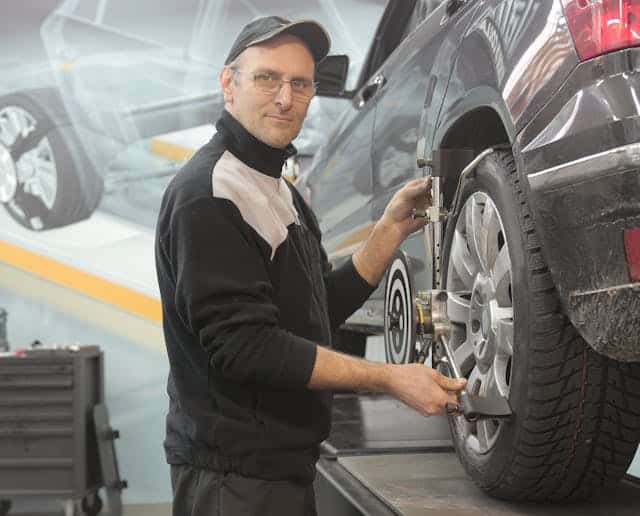The Significance of Certifications in Collision Repair Shops
 Choosing a collision repair shop is a decision that shouldn’t be taken lightly, especially after experiencing the stress of an automotive accident.
Choosing a collision repair shop is a decision that shouldn’t be taken lightly, especially after experiencing the stress of an automotive accident.
One critical factor that should influence your choice is the presence of professional certifications held by the repair shop. Certifications in the collision repair industry signify a shop’s commitment to excellence, adherence to current standards, and competence in using the latest repair technologies.
This article explores why certifications are so vital in selecting a collision repair shop and how they impact the quality of service and repairs you receive.
Why Certifications Matter
Assurance of Quality
Certifications provide vehicle owners with assurance that the repair shop meets high-quality standards. Organizations like the National Institute for Automotive Service Excellence (ASE) and the Inter-Industry Conference on Auto Collision Repair (I-CAR) offer certifications that require rigorous training and testing. Shops that obtain these certifications have proven their ability to perform repairs that meet industry standards.
Updated Training and Knowledge
Technology in the automotive industry evolves rapidly. Certified repair shops are required to undergo continuous training and recertification to stay updated with the latest repair techniques and technologies. This ongoing education ensures that the technicians working on your vehicle are knowledgeable about the latest advancements in automotive repair.
Enhanced Safety
The primary concern following a collision is the structural integrity and safety of your vehicle. Certified technicians understand the critical nature of their work and are trained to restore vehicles to their original safety specifications. This is especially important in today’s cars, which often include complex systems that require precise repairs to maintain the manufacturer’s safety standards.
Types of Certifications
ASE Certification
ASE is one of the most recognized certifications in the auto repair industry. Technicians with ASE certification have passed specialty exams and have met the requisite on-job or training experience. ASE certifications cover various aspects of collision repair, ensuring the technician is well-rounded and skilled.
I-CAR Gold Class
The I-CAR Gold Class certification is specific to collision repair and is considered a high standard within the industry. Shops with Gold Class status have personnel trained in every role during the repair process, ensuring comprehensive expertise from start to finish.
Manufacturer Certifications
Some repair shops obtain certifications from vehicle manufacturers, which means they are recognized by the manufacturer to perform repairs on their vehicles according to strict factory specifications. These certifications ensure the use of OEM parts and that repairs preserve any warranties you might have on the vehicle.
Choosing the Right Certified Repair Shop
Verify Certifications
When selecting a repair shop, it’s not enough to see logos or hear claims of certification. Verify these claims by asking for details about the certifications held by the shop and its technicians. You can also check with certifying organizations to confirm the shop’s status.
Consider the Shop’s Reputation
Alongside certifications, consider the shop’s reputation. Look for online reviews, testimonials, and feedback from previous customers about their experiences. A reputable shop will have a history of satisfied customers and transparent practices.
Evaluate the Shop’s Facilities
A visit to the shop can provide insights into the operation and professionalism of the business. Certified shops often invest in the latest technology and maintain a clean, organized workspace.
Conclusion
Certifications in collision repair shops are not just badges of honor; they are indicators of a shop’s commitment to providing safe, high-quality, and efficient service. When choosing a shop to handle repairs after a collision, certifications should be among your top considerations, ensuring that your vehicle is restored to its pre-accident condition by qualified professionals.
